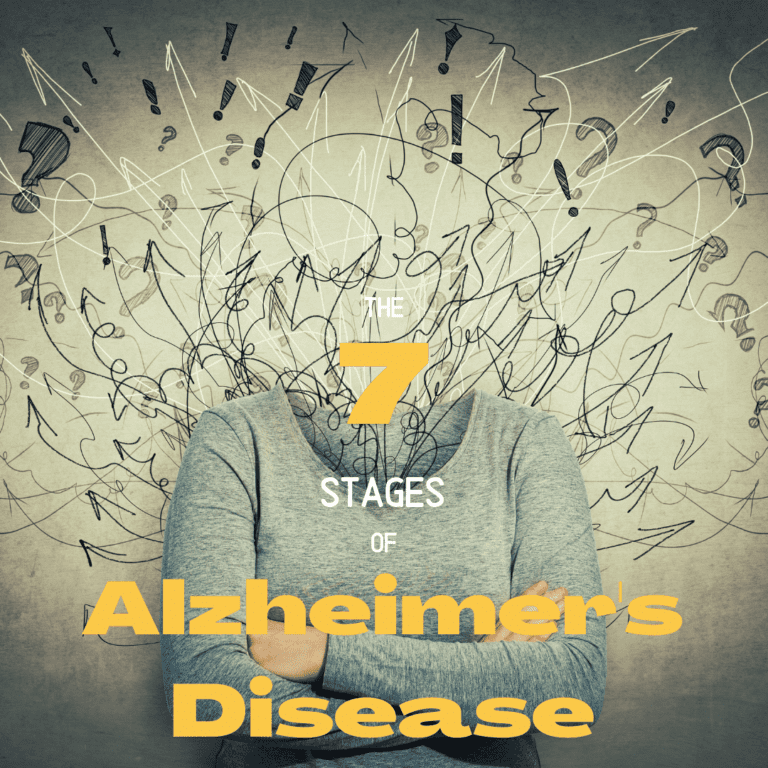Alzheimer’s disease is a neurodegenerative disease that occurs when the nerve cell proteins inside the brain become damaged. This results in progressive cognitive decline that will get worse over time. Unfortunately, there is no cure for Alzheimer’s, however there are treatments that can slow the progression of the disease and manage symptoms. Since a large part of good treatment outcomes are dependent on catching the disease as early as possible to prevent it from progressing, it is important to know what to look for. Alzheimer’s disease does not develop overnight and there are, in fact, seven stages of the disease. While stages overlap and each individual reacts differently, knowing the seven stages of Alzheimer’s disease can be used as a guideline to determine if you should schedule an appointment with a neurologist. Here are the seven stages of Alzheimer’s disease:
Stage 1: Before Symptoms
Like most other medical conditions, there are changes made in the body before symptoms appear. In the case of Alzheimer’s, certain brain changes occur about 10-15 years before symptoms start. Unfortunately, there is no treatment for this stage of Alzheimer’s, so regular primary care visits are recommended to determine when symptoms start.
Stage 2: Basic Forgetfulness

No one has perfect memory and it is normal to forget things occasionally, especially as we get older. However, basic forgetfulness that becomes more frequent can be one of the first signs of Alzheimer’s disease. Oftentimes, the affected individual won’t notice their forgetfulness and it is the ones around them that notice the difference. Seeking medical intervention at this point is recommended since early treatment has better outcomes in the long run.
Stage 3: Noticeable Memory Difficulties
Unlike basic forgetfulness, noticeable memory difficulties actually affect an individual’s daily routine. Things like forgetting words, challenges at work or in social settings, forgetting plans, difficulty organizing, and struggling to remember information are all considered noticeable memory difficulties.
Stage 4: More Than Just Memory
At this stage, there has been more damage to the brain that will start to affect cognition in addition to memory. As a result, people tend to have a harder time remembering day to day information and will start to experience other symptoms of Alzheimer’s. They may become confused about what day it is and/or where they are, may have trouble choosing appropriate clothing for the weather or occasion, and tend to wander off and get lost. Additionally, they may reverse their sleeping patterns, becoming sleepy during the day and restless at night. You may also notice personality changes at this stage.
Stage 5: Decreased Independence
From stages 1-4, most people will continue to maintain their independence with only minor challenges. However, during stage 5, independence becomes harder since they begin to forget close friends and family, struggle to learn new skills, and may forget to perform basic tasks, like getting dressed. Additionally, emotional changes are also frequently seen during this stage. This can cause hallucinations, delusions, and/or paranoia.
Stage 6: Severe Symptoms

People in this stage often have trouble responding to their environment, managing their own care, and communicating specific thoughts. Because of this, they are usually dependent on others around them to care for them. They may also experience increased anxiety, hallucinations, delusions, paranoia, and frustration.
Stage 7: Lack of Physical Control
The final stage of Alzheimer’s disease is when the brain has sustained so much damage that it fails to communicate with other parts of the body, causing mental and physical impairment. During this final stage, people require around the clock care and assistance for even the most basic parts of their daily routine.

Dr. Kashouty, a diplomate of the American Board of Psychiatry and Neurology (ABPN), practices general neurology with fellowship trained specialization in clinical neurophysiology. Dr. Kashouty finds the form and function of the nerves and muscles the most interesting part of neurology, which is what led him to specialize in neurophysiology with more emphasis on neuromuscular conditions. He treats all neurological diseases, but his main focus is to treat and manage headaches, movement disorders and neuromuscular diseases.




